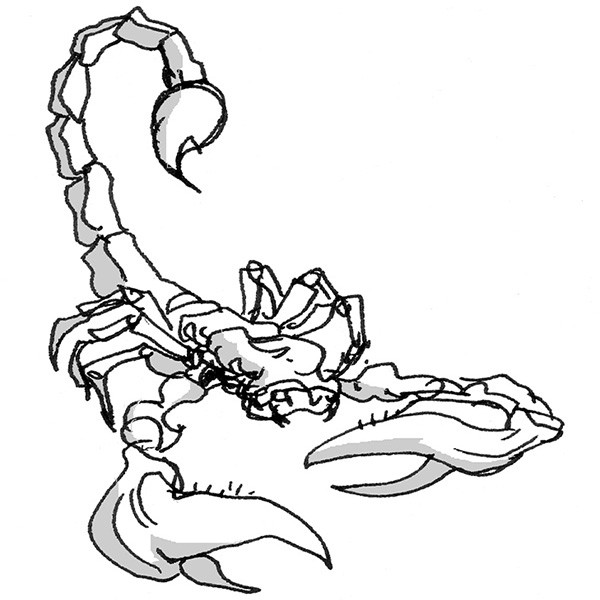But why should one make fortune knock, by keeping the door shut?
—Idries Shah
Esteemed Reader of Our Magazine:
As a teenager I was enamored of danger. I felt compelled to put my life in the hands of chance, though I justified the risk with the rationale that I was testing the limits of skill. I was fond of driving my motorcycle at top speed along dark, winding country roads at night. Sometimes I turned off the headlights to “use the force.” As a climber, I donned my climbing shoes and chalk bag to scale cliffs rope-free. I was seeking a certain taste of real life that was elusive in ordinary circumstances, and I sometimes found it, particularly when I barely escaped an almost certain demise. I would look with disdain at those who didn’t push themselves into the hazard of the unknown.
Now looking back, I see the stupidity of my exploits, but I also understand what was sought. The Katha Upanishad states: “Sharp like a razor’s edge is the path, the sages say, difficult to traverse.” This razor’s edge traverses the gauntlet between the known and the unknown, the stable and chaotic, safety and catastrophe. It is a realm in which new possibilities enter and are entertained. Going boldly into this realm yields the stuff of real life.
Of course, boldness does not always appear heroic or threaten life, but may simply be an opening to unaccustomed vulnerability or honesty. I am reminded of an exchange with my wife this week. I had missed my moment to get the children—two boys, three and one—to bed, and they were overtired, whining and fighting our push toward the bedroom. “You shouldn’t have read them so many books!” she said, annoyed, as we struggled to get them into pajamas. “Don’t criticize me,” I yelled over the children’s yelling. “Don’t make me wrong.” Then, after a moment, my real frustration became clear. “I don’t want to be wrong,” I confessed. She looked at me and smiled, the tension dissipated. “You just said something true,” she said.
I left the exchange feeling like I had topped out on a difficult climb, though the feeling was subtler. It was a visit to the realm of hazard—a situation that could have devolved into a fight, but instead resolved at a higher level. It felt like grace, or in more mundane terms, luck had entered. In that pivotal, pressurized moment I didn’t feel prepared to part with pride, but magically the possibility appeared, and a shift occurred.
There is a sweet spot on the perimeter of the known which is the realm of discovery. It is the frontier of being, in which we venture beyond the boundaries of familiarity and habit. The approach to this unknown country requires a wakefulness and readiness to respond, and faith that alertness will yield the best response. Like Odysseus running the gauntlet of Scylla and Charybdis, we are afflicted by the safety of the familiar on one side, and recklessly plunging into the unknown without maps or equipment on the other. Clearly, as in Odysseus’s case, we most find a route through the middle, carrying knowledge and experience, but ready to respond to something completely unforeseen.
In venturing toward the unknown, the line between boldness and stupidity is thin, and perhaps only the traveler, in her soberest moments, can honestly say which is at work. Perhaps the most important quality is commitment, which etymologically signifies “having a mission.” I learned this from climbing. There is a point at which there is no turning back, when a climber has done moves so difficult that he cannot reverse them and return to the ground. There is no choice but to go forward—which means there is no choice. That is the commitment that is required in the realm of hazard.
There is a relevant passage in John Bennett’s book Hazard:
One of the great Sufi teachers, Baha ad-din Naqshbandi, tells a story of how he once went into a gambling den. He watched the gamblers and he saw one man who had lost everything and whose friends were trying to persuade him not to go on. They said, “You have lost everything and borrowed everything. You threaten to sell yourself as a slave in order to have money to gamble. For your soul’s sake, give up this madness.” The man answered, “I would not only sell myself as a slave, I would give my life rather than stop gambling. For me, this is more than life.” When Baha ad-din came out of the gambling den, he said to his pupils, “That is an example of how man should be. From that man I have learned what is single-minded devotion.”
Baha ad-din clearly liked this story because it describes the disposition of a saint’s dedication to truth. But it is interesting in its portrayal of the role of
commitment, however compulsive, in the realm of chance.

















